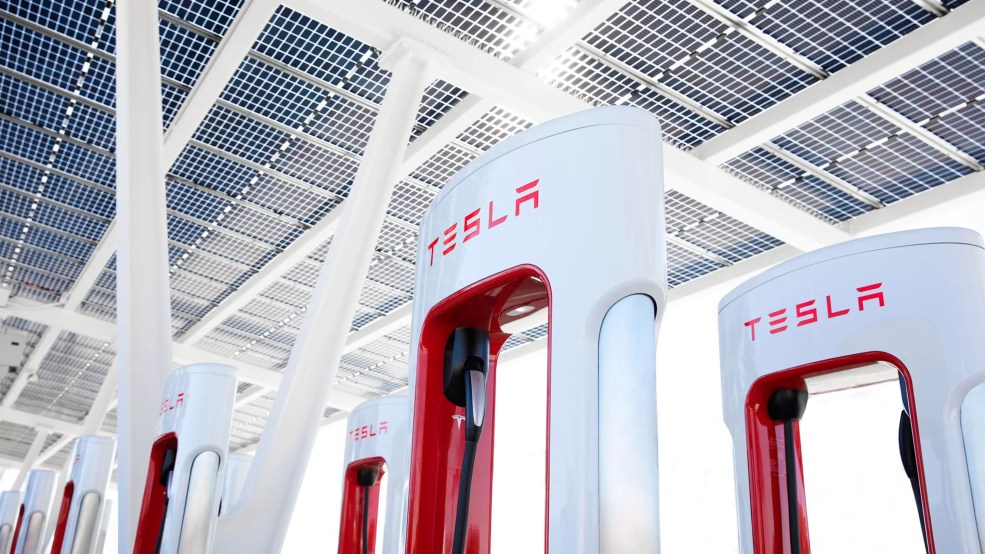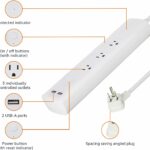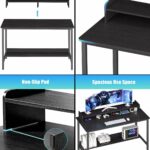The article titled “Formation of NACS Charging Standard Alliance: Insights and Details of 5 Related Stocks” provides insights into the recent formation of the NACS Charging Standards Alliance between Tesla and Hyundai, along with a summary of the details of five related stocks. The article highlights the significance of this alliance in the electric vehicle market, the background behind the formation, and the potential effects on the market and other automakers. It also discusses the future outlook of the electric vehicle industry and provides information on five domestic stocks that are seemingly related to this development. Overall, the article aims to provide a comprehensive overview of the NACS Charging Standard Alliance and its implications.
NACS Charging Standard Alliance
The NACS Charging Standard Alliance has been formed to establish a unified charging standard for electric vehicles (EVs). This alliance includes several major automakers such as Hyundai Motor Company, General Motors, Ford, Rivian, and Volvo. The formation of this alliance is a significant development in the EV market and has several benefits for both the industry and consumers.
Formation of NACS Charging Standard Alliance
The NACS Charging Standard Alliance was formed to address the need for a standardized charging infrastructure for EVs. With different automakers using different charging standards, it was challenging for EV users to find compatible charging stations. The alliance aims to unify the charging standards and provide a seamless charging experience for EV users.
Background of NACS Charging Standard Alliance
The NACS Charging Standard Alliance is a collaboration among major automakers to adopt Tesla’s North American Charging Standard (NACS) for EV charging. Tesla has been a leader in the EV market, and its charging standard has gained widespread recognition for its efficiency and reliability. By joining the alliance, automakers aim to provide their customers with a unified charging experience and expand the charging infrastructure across North America.

Benefits of NACS Charging Standard Alliance
-
Simplified Charging Experience: The adoption of a unified charging standard will make it easier for EV users to find compatible charging stations. This will eliminate the need for multiple charging adapters and ensure a seamless charging experience.
-
Expanded Charging Infrastructure: The alliance will result in the development of a larger and more comprehensive charging infrastructure across North America. This will address range anxiety and encourage more consumers to switch to EVs.
-
Faster Adoption of EVs: By standardizing the charging infrastructure, the alliance will promote the wider adoption of EVs. The availability of a reliable and efficient charging network will attract more consumers to electric vehicles.
-
Increased Collaboration Among Automakers: The formation of the alliance demonstrates a new level of collaboration and cooperation among automakers. This joint effort will accelerate the development of EV technology and contribute to the sustainability goals of the industry.
-
Positive Impact on the Environment: The increased adoption of EVs will lead to a significant reduction in greenhouse gas emissions. By promoting the use of electric vehicles and providing a reliable charging infrastructure, the alliance will contribute to a cleaner and more sustainable future.
Insights of 5 Related Stocks
Hyundai Motor Company
Hyundai Motor Company is one of the key members of the NACS Charging Standard Alliance. The company has made significant strides in the electric vehicle market with models like the Hyundai Kona Electric and the Hyundai Ioniq Electric. By joining the alliance, Hyundai aims to strengthen its position in the EV market and provide its customers with a seamless charging experience.
General Motors
General Motors is another major automaker that has joined the NACS Charging Standard Alliance. The company has made a strong commitment to electric vehicles with models like the Chevrolet Bolt EV and the upcoming GMC Hummer EV. By adopting the NACS charging standard, General Motors aims to enhance its EV offerings and contribute to the development of a standardized charging infrastructure.
Ford
Ford has also joined the NACS Charging Standard Alliance to support the adoption of a unified charging standard. The company has recently introduced the Ford Mustang Mach-E, an all-electric SUV, and has plans to expand its electric vehicle lineup. By participating in the alliance, Ford aims to provide its customers with a convenient and reliable charging experience.
Rivian
Rivian, an electric vehicle startup, has joined the NACS Charging Standard Alliance to align its charging infrastructure with industry standards. The company is known for its innovative electric pickup trucks and SUVs. By adopting the NACS charging standard, Rivian aims to establish a seamless charging network for its customers and contribute to the growth of the EV market.
Volvo
Volvo, a leading automaker in the electric vehicle market, has joined the NACS Charging Standard Alliance to support the adoption of a standardized charging infrastructure. The company has made a strong commitment to electrification with models like the Volvo XC40 Recharge and plans for a fully electric lineup by 2030. By participating in the alliance, Volvo aims to provide its customers with a reliable and efficient charging experience.

Introduction to NACS Charging Standard
The NACS charging standard, developed by Tesla, is a high-speed charging standard for electric vehicles. It primarily uses DC (direct current) charging for fast charging and provides a network of Superchargers for EV users. The NACS charging standard is known for its efficiency, reliability, and widespread availability across North America.
Definition and Characteristics of NACS Standard
The NACS charging standard is designed to provide EV users with a fast and convenient charging experience. It utilizes high-speed DC charging technology to minimize charging time and maximize convenience for EV owners. The NACS charging standard also includes a network of Superchargers that offer both DC and AC (alternating current) charging options.
Comparison with Other Charging Standards
The NACS charging standard differs from other charging standards in its widespread availability and efficiency. While other charging standards may be used regionally or by specific automakers, the NACS standard has gained recognition and adoption across North America. The network of Superchargers also sets the NACS standard apart by providing fast-charging options for EV owners.
Current Trends in the Electric Vehicle Market
The electric vehicle market continues to experience significant growth worldwide. Several factors are driving this growth, including increased global awareness of climate change, government policies supporting carbon reduction, and advancements in battery technology.
Continued Growth of the Electric Vehicle Market
The electric vehicle market has seen steady growth in recent years and is expected to continue expanding. This growth is driven by increasing consumer demand for sustainable transportation options, government incentives and regulations promoting electric vehicles, and advancements in EV technology.
Factors Driving the Growth
Several factors are driving the growth of the electric vehicle market. These include:
-
Environmental Concerns: Increased awareness of climate change and the need to reduce greenhouse gas emissions are driving consumers to choose electric vehicles as a more sustainable transportation option.
-
Government Support: Governments around the world are implementing policies to promote the adoption of electric vehicles. These include financial incentives, tax credits, and regulations aimed at reducing carbon emissions.
-
Advancements in Battery Technology: Improvements in battery technology have led to increased driving range and shorter charging times for electric vehicles. This has addressed one of the main concerns for consumers considering EVs.
-
Infrastructure Development: The expansion of charging infrastructure, including the establishment of fast-charging networks, has made electric vehicles more practical and convenient for consumers.
Innovation in Battery Technology
One of the key factors driving the growth of the electric vehicle market is continued innovation in battery technology. Advancements in battery technology have led to increased energy density, longer driving ranges, and faster charging times for electric vehicles. This has addressed one of the main concerns of consumers considering electric vehicles and has contributed to their increased adoption.
Shift of Traditional Automakers towards EV Production
Traditional automakers are increasingly shifting their focus towards electric vehicle production. Companies like General Motors, Ford, and Volvo are investing heavily in EV technology and introducing new electric models to their lineup. This shift is driven by the growing demand for electric vehicles and the need to meet stricter emissions regulations.

Market Position of Tesla and Hyundai
Tesla’s Leadership in the Electric Vehicle Market
Tesla has established itself as a leader in the electric vehicle market. The company’s innovative technology, extensive charging infrastructure, and strong brand image have contributed to its success. Tesla’s Supercharger network, which utilizes the NACS charging standard, provides fast and convenient charging for Tesla owners and has set the standard for the industry.
Hyundai’s Entry into the Electric Vehicle Market
Hyundai has made significant strides in the electric vehicle market in recent years. The company has introduced electric models like the Hyundai Kona Electric and the Hyundai Ioniq Electric, which have been well-received by consumers. Hyundai’s entry into the electric vehicle market has strengthened its position as an innovative and sustainable automaker.
Comparison of Sales Volume
As of the first quarter of 2023, Tesla is the clear leader in electric vehicle sales in the United States. The company has sold 161,630 electric vehicles, far surpassing its competitors. Hyundai and Kia, on the other hand, have sold 14,703 electric vehicles, positioning them at third place in the market. This comparison highlights Tesla’s dominant market position and the potential for growth for Hyundai and other automakers.
Future Outlook of the Electric Vehicle Market
Expected Changes in the Industry due to the Alliance
The formation of the NACS Charging Standard Alliance is expected to bring significant changes to the electric vehicle industry. The adoption of a unified charging standard will simplify the charging experience for EV users and expand the charging infrastructure across North America. This will contribute to the wider adoption of electric vehicles and accelerate the transition to sustainable transportation.
Reactions and Strategies of Other Automakers
The formation of the NACS Charging Standard Alliance may prompt other automakers to reconsider their stance on charging standards. With the majority of major automakers joining the alliance, those that have not yet adopted a unified charging standard may face pressure to do so. The alliance may also encourage increased collaboration and cooperation among automakers in the development of EV technology and infrastructure.

Insights into Hyundai Motor Company
Overview of Hyundai Motor Company
Hyundai Motor Company is a global automaker headquartered in South Korea. The company is known for producing a wide range of vehicles, including electric and hybrid models. Hyundai has made significant investments in electric vehicle technology and has introduced several electric models to its lineup.
Relevance to NACS Charging Standard Alliance
As a member of the NACS Charging Standard Alliance, Hyundai Motor Company has shown its commitment to promoting a unified charging standard for electric vehicles. By joining the alliance, Hyundai aims to provide its customers with a seamless charging experience and strengthen its position in the electric vehicle market.
Insights into General Motors
Overview of General Motors
General Motors is one of the largest automakers in the world, with a diverse lineup of vehicles. The company has a strong presence in the electric vehicle market and has introduced several electric models, such as the Chevrolet Bolt EV. General Motors is committed to electrification and has ambitious plans for electric vehicle production.
Relevance to NACS Charging Standard Alliance
General Motors’ participation in the NACS Charging Standard Alliance demonstrates its commitment to promoting a standardized charging infrastructure for electric vehicles. By adopting the NACS charging standard, General Motors aims to provide its customers with a seamless charging experience and contribute to the growth of the electric vehicle market.

Insights into Ford
Overview of Ford
Ford is a multinational automaker headquartered in the United States. The company has a long history in the automotive industry and produces a wide range of vehicles, including electric and hybrid models. Ford has made significant investments in electric vehicle technology and has introduced electric models like the Ford Mustang Mach-E.
Relevance to NACS Charging Standard Alliance
As a member of the NACS Charging Standard Alliance, Ford aims to support the adoption of a standardized charging infrastructure for electric vehicles. By joining the alliance, Ford can provide its customers with a seamless charging experience and contribute to the development of the electric vehicle market.
Insights into Volvo
Overview of Volvo
Volvo is a Swedish automaker known for its commitment to safety and sustainability. The company produces a range of vehicles, including electric and hybrid models. Volvo has made significant strides in the electric vehicle market and has plans to transition to a fully electric lineup by 2030.
Relevance to NACS Charging Standard Alliance
Volvo’s participation in the NACS Charging Standard Alliance demonstrates its commitment to promoting a unified charging standard for electric vehicles. By adopting the NACS charging standard, Volvo aims to provide its customers with a seamless charging experience and contribute to the growth of the electric vehicle market.
In conclusion, the formation of the NACS Charging Standard Alliance is a significant development in the electric vehicle market. The adoption of a standardized charging infrastructure will simplify the charging experience for EV users and promote the wider adoption of electric vehicles. Automakers like Hyundai, General Motors, Ford, Rivian, and Volvo are actively participating in the alliance to provide their customers with a seamless charging experience and contribute to the growth of the electric vehicle market. The future of the electric vehicle market looks promising, with continued advancements in battery technology and increased collaboration among automakers.










